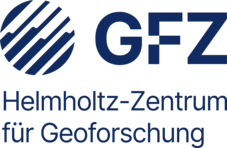Marie Skłodowska Curie - Doctoral Networks (ongoing)
In order to create a strong foundation of human resources for the European scientific area, the Doctoral Networks programme (under Horizon 2020 ‘ITNs - Innovative Training Networks’) aims to structure the initial training of excellent researchers and doctoral candidates and adapt it to the requirements of the labour market in the private and public sectors.
EnvSeis
Studying the Earth's surface with seismic methods
Dr. Jens Turowski [2021]
- The project trains young scientists in seismology and geosciences in order to lay the foundation for a new, strong generation of environmental seismologists.
- Duration: 2022-2026
- Project website
TALENTS
The doctoral rift science network for the energy transition
Prof. Dr. Sascha Brune [2022]
- The project aims to improve our understanding of the formation of rifts, the fragmentation of continents and the relationship between rifts, societal benefits and geohazards, by training doctoral students and establishing a cooperation network.
- Duration: 2024-2027
- Project website
ICEBIO
Centre for Glacial Biome Doctoral Network
Prof. Dr. Liane G. Benning [2021]
- The PhD students in the project want to improve our understanding of microbial and biogeochemical processes in a range of glacier ecosystems.
- Duration: 2022-2026
- Project website
IMPROVE
Innovative Multi-disciPlinary European Research training netwOrk on VolcanoEs
Dr. Philippe Jousset [2019]
- The project trains PhD students in defining the subsurface structure and dynamics of volcanic and geothermal systems.
- Duration: 2021-2025
- Project website
INITIATE
Climate tectonics interactions using big data-informed models [2023]
- The aim of the INITIATE doctoral network is to close the key knowledge gaps on how climate-tectonics interactions control sediment distribution, landscape stability and geohazards at a variety of spatial and temporal scales using big data modelling.
- Duration: 2024-2028
- Project website
SPIN
Seismological Parameters and INstrumentation
Dr. Christoph Sens-Schönfelder [2020]
- The main objective of the SPIN network is to improve seismic observation, theory and hazard assessment.
- Duration: 2021-2025
- Project website
S2S-Future
Signal Propagation in Source to sink for the future of earth Ressources and Energies
Prof. Dr. Jean Braun [2019]
- The aim of the S2S-Future training network is to better predict the location and structure of sediments and their mineralogical/physical properties.
- Duration: 2020-2024
- Project website
SYSTEM_RISK
System-Risk - A Large-Scale Systems Approach to Flood Risk Assessment and Management.
Prof. Dr. Bruno Merz [2015]
- System-Risk is a European Marie Skłodowska-Curie training network that aims to develop and implement a systems approach to large-scale flood risk assessment and management, providing a framework for the training and career development of 15 early career researchers.
- Duration: 2016-2019
- Project website
SUBITOP
Understanding subduction zone topography through modelling of coupled shallow and deep processes
Prof. Dr. Niels Hovius [2015]
- SUBITOP is a Marie Skłodowska-Curie network for the training and career development of 15 young researchers in the fields of geodynamics, geophysics, geology and geomorphology.
- Duration: 2016-2020
- Project website
METAL-AID
Metal oxide Aided Subsurface Remediation: From Invention to Injection
Prof. Dr. Liane G. Benning [2015]
- Metal-Aid aims to test, validate and further develop new mineral-based technologies that can be used to decontaminate soils and groundwater.
- Duration: 20216-2021
- Project website
MICROARCTIC
Microorganisms in Warming Arctic Environments
Prof. Dr. Dirk Wagner [2015]
- MICROARCTIC aims to train the next generation of experts in Arctic microbiology and biogeochemistry who, through their unique understanding of the Arctic environment and the factors affecting the response of ecosystems and organisms to Arctic warming, will be able to respond to the need for leadership by public, political and commercial interests.
- Duration: 2016-2021
- Project website
URBASIS
New challenges for Urban Engineering Seismology
Prof. Dr. Fabrice Cotton [2018]
- URBASIS has created a training platform for young researchers working on low-probability, high-consequence events and induced seismicity related to energy resource utilisation, urban non-free-field seismic ground motion prediction and systemic risk of interrelated urban systems.
- Duration: 2018-2023
- Project website
ERC Starting Grants (ongoing)
The ERC Starting Grants enable excellent young scientists who completed their doctorate between 2 and 7 years ago to start their own independent career and set up their own research group.
ASTROGEODESY
Astrogeodesy by VLBI Global Observing System
Dr. Minghui Xu, GFZ [2022]
- The project aims to improve the performance of the geodetic Very Long Baseline Interferometry (VLBI) system of the next generation of the VLBI Global Observing System (VGOS).
- Duration: 2023 - 2028
- Project website
- GFZ News "Dr. Minghui Xu receives an ERC starting grant"
DEN

DNE - Deconvolving the early record of eukaryotic evolution
Ilya Bobrovskiy, GFZ
- Laufzeit 2025-2030
- GFZ-News: ERC Starting Grant for Dr Ilya Bobrovskiy
QUAKEHUNTER
Real-time monitoring of earthquake nucleation for faults near urban areas
Prof. Dr. Patricia Martinez-Garzon, GFZ [2022]
- The project aims to investigate earthquake nucleation processes in order to detect signals upstream of medium to large earthquakes.
- Duration: 2023-2028
- Project website
- Press Release MWFK (German only)
TECTOVISION
What is controlling plate motions over the minutes to decades timescale?
Dr. Jonathan Bedford, GFZ & Ruhr-Universität Bochum [2021]
- The potential of global satellite navigation systems to precisely track earth movements is to be further exploited in the project.
- Duration: 2022-2027
- Project website
- GFZ Press Release "ERC Grant for GFZ scientist”
COLD
Climate Sensitivity of Glacial Landscape Dynamics
Prof. Dr. Dirk Scherler, GFZ [2017]
- We combine field observations, cosmogenic nuclides, remote sensing and numerical modelling to quantify the erosion rates of steep rock faces in glacial landscapes and to assess the sensitivity of these landscapes to climatic changes.
- Duration: 2018 – 2023
- Project website
![[Translate to English:] Logo EnvSeis](/fileadmin/gfz/forschung/Nachwuchsgruppen/Logos/2_EnvSeis.png.svg)